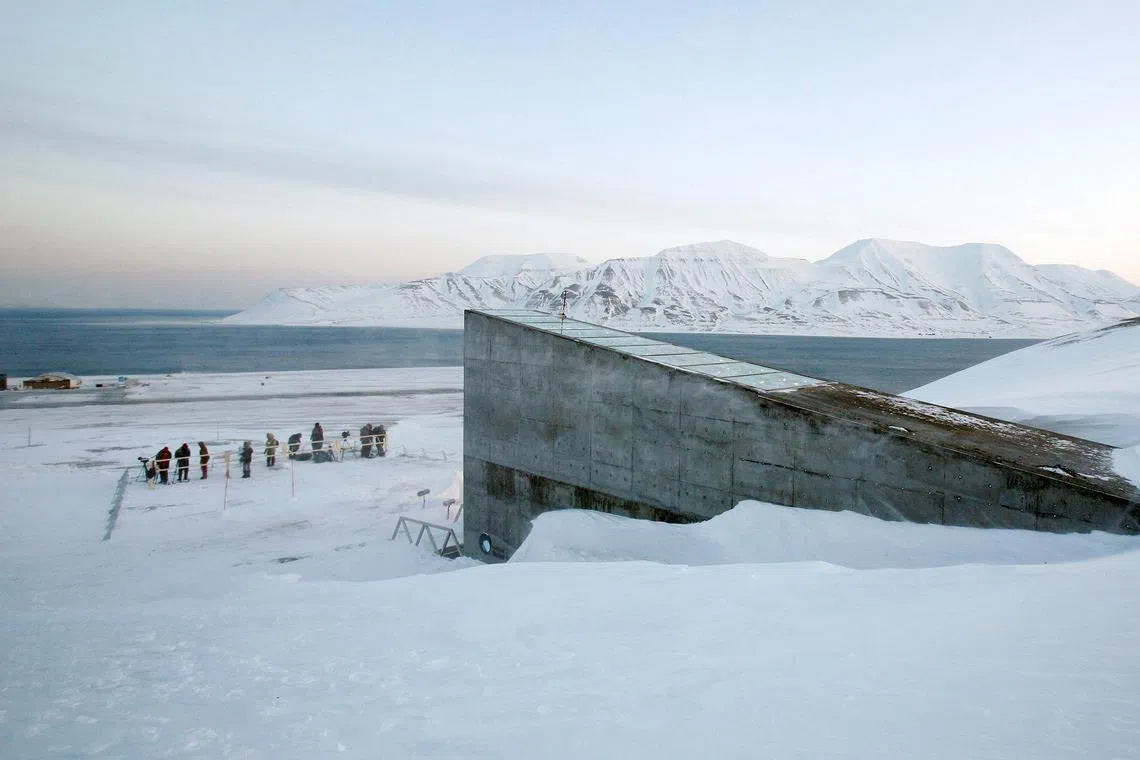'Doomsday' Arctic seed vault gets boost as efforts to secure food supplies ramp up
Sign up now: Get ST's newsletters delivered to your inbox

The Svalbard Global Seed Vault has seed samples from nearly every country in the world.
PHOTO: REUTERS
LONDON - A “doomsday” Arctic seed vault on Norway’s Spitsbergen island is set to receive its most diverse batch of seed donations yet as efforts to secure the world’s food supplies are ramped up amid rising climate concerns.
The Svalbard Global Seed Vault, built to protect the world’s food stock from disasters
The vault, set in permafrost caves on a mountainside halfway between mainland Europe and the North Pole, was launched in 2008 as a backup for the world’s national and regional gene banks that store the genetic code for thousands of plant species.
It has seed samples from nearly every country in the world, and played an essential role between 2015 and 2019 in rebuilding seed collections damaged during the war in Syria.
“The whole of humanity relies on the genetic diversity of crops maintained in the world’s gene banks, and the Seed Vault is the last line of defence against the loss of that diversity,” said Ms Sandra Borch, Norway’s Minister of Agriculture and Food.
Svalbard, which also serves as a backup for plant breeders to develop new crop varieties more resistant to climate change, opened its doors to public at large for the first time on Tuesday by launching a free virtual tour of its subterranean seed chambers.
The chambers, which are only opened three times a year to limit the seeds’ exposure to the outside world, boast temperatures of around -18 deg C.
The virtual tour launch and the seed deposits from some 20 gene banks were timed to mark Svalbard’s 15 year anniversary.
“From here in Svalbard, the world looks different. This Seed Vault represents hope, unity and security,” said Mr Stefan Schmitz, executive director of the Crop Trust, an international non-profit that operates Svalbard along with the Norwegian authorities.
“In a world where the climate crisis, biodiversity loss, natural catastrophes and conflicts increasingly destabilise our food systems, it has never been more important to prioritise safeguarding these tiny seeds.”
The world used to cultivate over 6,000 different plants, but United Nations experts say we now get about 40 per cent of our calories from three main crops – maize, wheat and rice – making food supplies vulnerable if climate change causes harvests to fail. REUTERS


